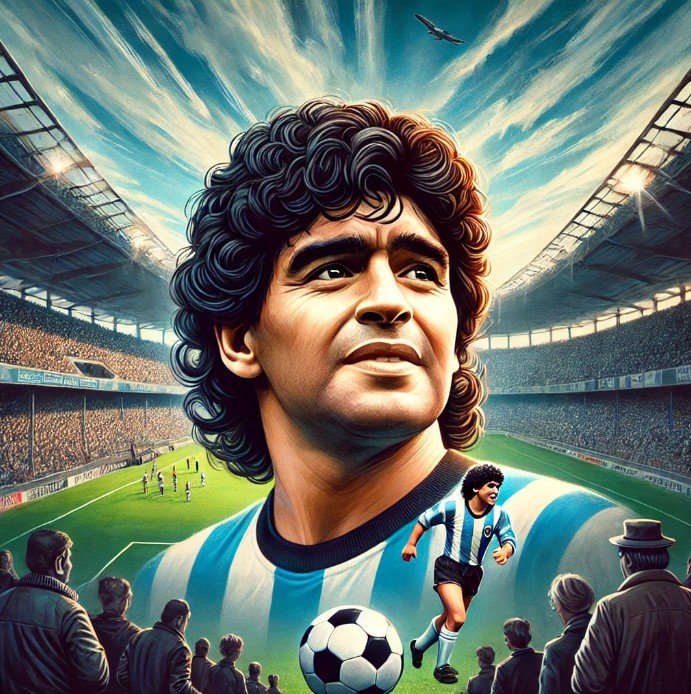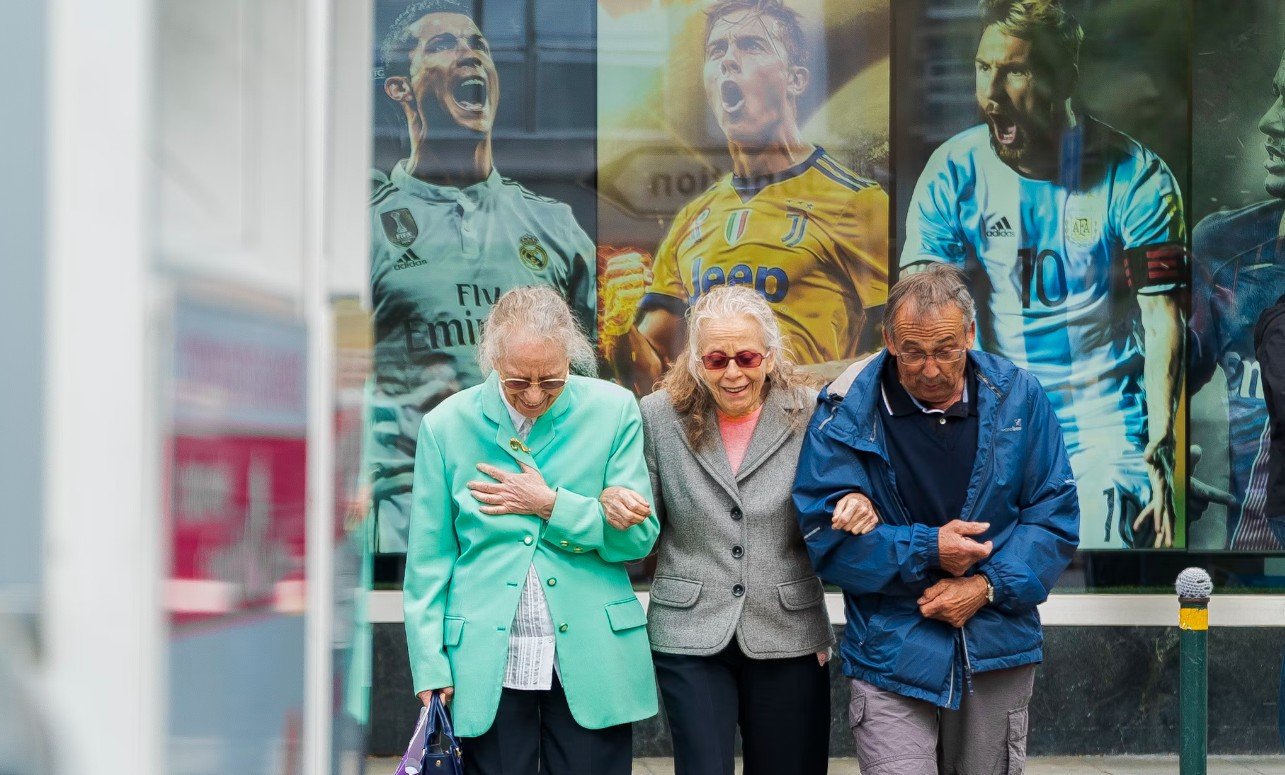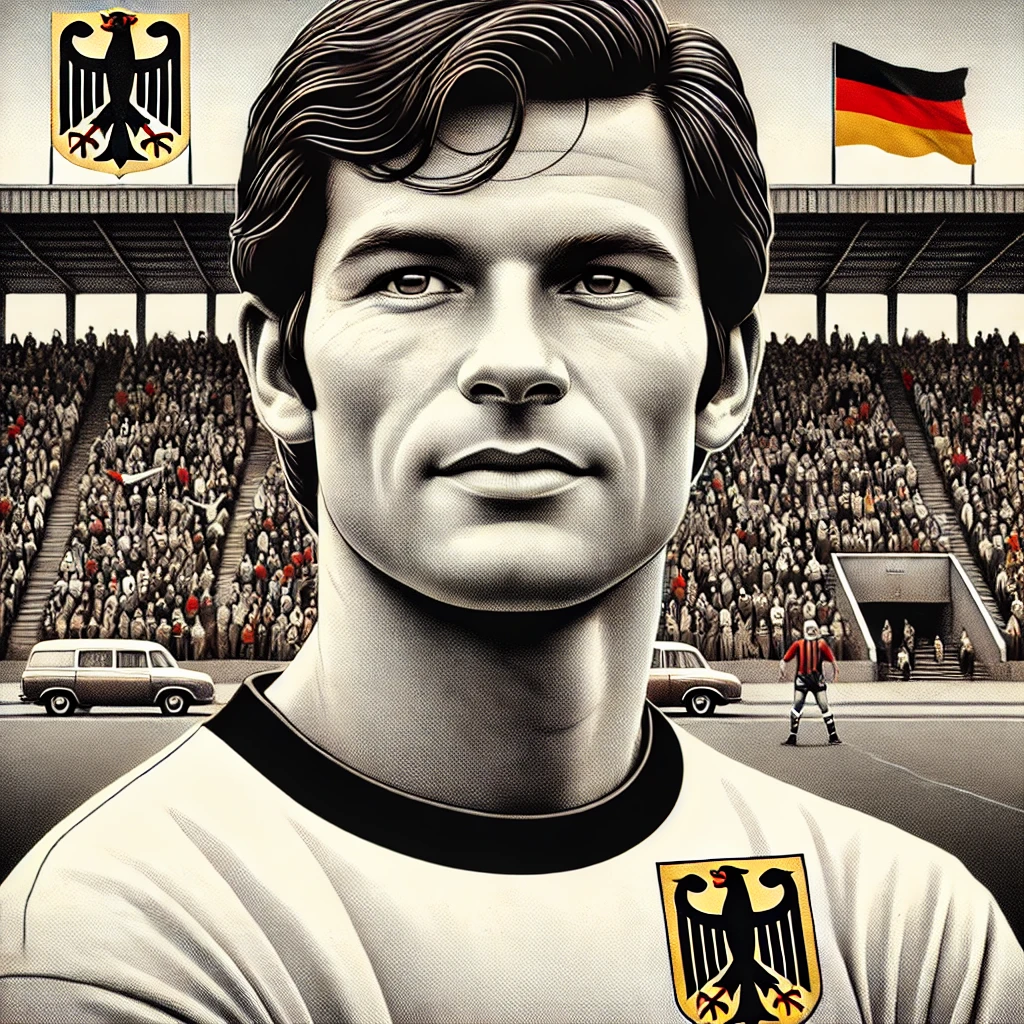Introduction
Diego Maradona was born on October 30, 1960, in Lanús, Argentina, and is considered one of the greatest football players in history. Known for his exceptional dribbling skills, speed, and incredible goal-scoring abilities, Maradona gained worldwide fame throughout his career. He played for several clubs, including Boca Juniors, Barcelona, and Napoli.
Maradona’s performance in the 1986 FIFA World Cup remains unforgettable, where he played a crucial role in leading Argentina to victory. In that tournament, he showcased his iconic “Hand of God” goal and his incredible solo effort against England, which is often hailed as one of the greatest goals in World Cup history. Maradona’s influence on football and his charismatic personality made him a legend, leaving a lasting legacy in the world of sports.
Diego Maradona: Key Moments and Challenges of His Life
Humble Beginnings
Maradona was born on October 30, 1960, in Villa Fiorito, a poor neighborhood in Buenos Aires, Argentina. Growing up in poverty, he developed a love for football at a young age, using his skills to rise out of difficult circumstances.
The Rise to Stardom
Maradona’s football journey began early, as he joined the Argentinos Juniors youth team at just 10 years old. His incredible talent quickly caught attention, and by 16, he was playing professionally, soon joining Boca Juniors and later moving to Europe to play for clubs like Barcelona and Napoli.
1986 World Cup Glory
The 1986 FIFA World Cup in Mexico marked the pinnacle of Maradona’s career. Leading Argentina to victory, he scored two of the most famous goals in history against England in the quarterfinals: the “Hand of God” goal and a stunning solo run from midfield, often referred to as the “Goal of the Century.”
Struggles with Addiction
Fame brought challenges for Maradona, and he struggled with drug addiction, especially during his time in Napoli, Italy. This addiction affected his health and led to suspensions, controversies, and a temporary exile from professional football. Despite efforts to overcome these issues, his health continued to suffer.
Health Battles
Maradona’s lifestyle took a toll on his health. He faced multiple health crises, including heart issues and obesity-related complications. He underwent rehabilitation and several surgeries throughout his life, which brought him back from the brink several times.
Legacy and Influence
Despite his struggles, Maradona’s influence on football and global culture remains unmatched. His skill, passion, and raw talent made him a legend, especially for Argentinians, who saw him as a symbol of hope and resilience. Maradona passed away on November 25, 2020, leaving behind a legacy as one of the greatest and most complex figures in sports history.
Diego Maradona: The Greatest Challenges of His Life
Diego Maradona: The Greatest Challenges of His Life
- Drug Addiction and Its Consequences
One of the most significant challenges in Maradona’s life was his battle with drug addiction. His issues began in the 1980s when he was playing for Napoli in Italy. Addiction not only affected his health but also led to multiple suspensions, including a 15-month ban from football in 1991 after testing positive for cocaine. This problem haunted him for years and overshadowed his incredible talent. - Health Complications
Maradona’s lifestyle choices led to severe health issues, including obesity, heart problems, and liver complications. His addiction and unhealthy habits required him to undergo multiple medical treatments and surgeries over the years. His declining health affected his public image and limited his later involvement in football. - Media and Personal Life Controversies
As a global icon, Maradona was constantly under media scrutiny. His personal life, including issues related to paternity cases, relationships, and legal troubles, often made headlines. This affected his mental health and relationships, adding stress and instability to his life outside football. - Pressure of Fame and Expectation
Maradona was celebrated and idolized, especially in Argentina, where he was seen as a national hero. The immense pressure to constantly perform and live up to his “legendary” status weighed heavily on him. This pressure, combined with his struggles with addiction, made it difficult for him to maintain a balanced life. - Exile from Professional Football
In 1994, Maradona was expelled from the FIFA World Cup after failing a drug test. This marked a turning point in his career, as it effectively ended his professional playing days. The incident brought public shame and a feeling of exile, impacting his mental well-being and leading to a long journey of rehabilitation and recovery attempts.
These challenges made Maradona’s life as turbulent as it was legendary, underscoring both his incredible talent and his vulnerabilities as a human being.
Diego Maradona: A Glimpse into His Personal Life
- Family Background and Early Life
Diego Maradona was born into a large, close-knit, and humble family in Villa Fiorito, Buenos Aires. He was the fifth of eight children and grew up in poverty. His family played a significant role in his life, with his parents, especially his mother, Doña Tota, being a strong influence on him. - Relationships and Children
Maradona’s personal life included several relationships that often drew media attention. He was married to Claudia Villafañe in 1989, and they had two daughters together, Dalma and Giannina. Maradona also had other children through relationships outside his marriage, which led to legal battles and paternity cases over the years. Despite the complexities, he eventually acknowledged all his children, showing a commitment to family. - Friendships and Loyalty
Known for his loyalty to friends, Maradona built strong bonds with fellow players and close associates. He maintained lifelong friendships with many of his former teammates and was known for his dedication to people close to him. He was also deeply patriotic, with an unwavering loyalty to Argentina, which was evident throughout his life. - Struggles with Fame and Privacy
Fame had a profound impact on Maradona’s personal life. Constant media attention made it challenging for him to maintain privacy, and he often felt the pressure of living up to his legendary status. This took a toll on his mental health, affecting his relationships and personal decisions. - Love for Football Beyond the Field
Even after retiring from professional football, Maradona’s love for the sport remained strong. He continued to be involved in football as a coach and mentor, sharing his passion and expertise. His influence and presence in football were felt globally, showing that his dedication to the game was not limited to his playing days.
Maradona’s personal life was a blend of intense relationships, loyalty to his roots, and challenges that came with fame. His life off the field was as intense as his career on it, leaving a lasting impact on his family, friends, and fans around the world.
Diego Maradona: Net Worth and Financial Legacy
Diego Maradona, despite his legendary status in the world of football, had a complex financial journey. At the height of his career in the 1980s and 1990s, Maradona earned substantial wealth from his club salaries, endorsements, and sponsorships. Playing for prestigious clubs like Barcelona and Napoli, he was among the highest-paid footballers of his time.
However, Maradona faced financial difficulties later in life due to issues such as legal battles, unpaid taxes, and lavish spending. In 2005, he owed millions in unpaid taxes to the Italian government, stemming from his time with Napoli, which led to ongoing legal and financial complications.
At the time of his passing in 2020, Maradona’s net worth was estimated to be between $500,000 and $1 million. Although his wealth fluctuated, his legacy and influence in football remain invaluable, with his impact reaching far beyond material wealth. Maradona’s story reflects both the highs of stardom and the financial struggles that followed, making him a uniquely memorable figure in sports history.
Diego Maradona: His Final Years
In the final years of his life, Diego Maradona faced significant health challenges and took on various roles in football. After retiring from playing, he continued his connection to the sport as a coach and advisor for teams in Argentina, Mexico, and other countries. His passion for football was evident even in his later years, as he took up managerial positions to guide young players and share his wealth of experience.
However, Maradona’s health continued to decline due to a lifetime of physical and emotional stress, past addictions, and ongoing medical issues. He struggled with heart problems, obesity, and complications from previous surgeries. In early November 2020, Maradona underwent surgery for a brain blood clot, which briefly improved his condition. Unfortunately, just weeks later, on November 25, 2020, Maradona passed away at the age of 60 due to a heart attack at his home in Argentina.
His passing sent shockwaves around the world, with tributes pouring in from fans, players, and leaders who recognized him as one of the greatest football icons of all time. Maradona’s final years were a mix of health battles and his enduring love for football, leaving a legacy that will forever be remembered by fans and the football community.









